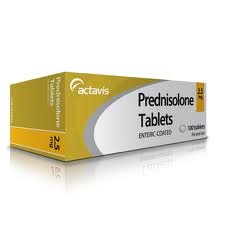How Should Prednisone Be Used
Prednisone corticosteroid levels, How Should Prednisone Be Used, how to take prednisone, prednisone and cancer, prednisone and steroids, prednisone dosage, prednisone medication, prednisone medicine, Prednisone Side Effects, weight loss prednisonePrednisone is a drug used to treat symptoms of low corticosteroid levels, which is lack of certain substances that are typically produced by the body and needed for normal body functioning. Sometimes it is used alone, while other times in conjunction with other medications. The drug is also used to treat other conditions in patients who have normal corticosteroid levels. Other conditions in which a person might be prescribed Prednisone includes: types of arthritis, severe allergic reactions, multiple sclerosis, certain types of cancer and lupus to name a few.

Prednisone is available in liquid form, a concentrated solution, and a tablet all taken by the mouth. Usually, this drug is taken with food 1-4 times a day or once every other day. Consult your physician on the dosage most suitable for you. Be sure to take exactly as directed. If taking Prednisone as the concentrated solution, use the specially marked dropper used to measure your dose that comes with the medication. The concentrated solution can be mixed with juice, soft foods, and other flavored liquids.
Some patients take prednisone to treat long-lasting diseases. While the medication may help to control the condition, it likely won’t cure it so continue taking prednisone even if you feel well. Don’t just stop taking the drug without first consulting your doctor. A sudden stop in taking prednisone can cause extreme tiredness, slowed movements, weakness, upset stomach, weight loss, mouth sores, craving for salt and changes in skin color. By stopping your body may not have enough natural steroids to function normally so these types of symptoms result. Your doctor is there to make sure you’re always taking the right amount of prednisone and he/she will adjust your dosage as needed if necessary. Just always consult your physician on any changes, side effects, symptoms or ideas you may have regarding your health and how it pertains to the drug.
Related Posts
- Prednisone and Cancer
Prednisone is also a steroid drug that is used by cancer patients. The glucocorticosteroid is…
- Prednisone Dosage for Asthma
There are anti-inflammatory drugs that can be used for asthma and lung diseases, and one…
- Prednisone Dosage Recommendations
Do you know what prednisone is? It is a medicine that is used for the…